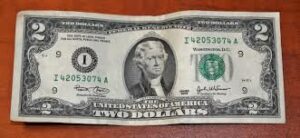In the video below I discuss a simple question: will the dollar crash in 2021?
I mention some similarities between 2010 and 2021 and why that should be a warning to anybody assuming the Dollar will crash.
To subscribe and see more click here. Recent videos have discussed matters such as:
- What are the best jobs you can get without a degree?
- How soon can you become a millionaire if you invest $1,000 a month into stock markets?
- Will the UK bring in a wealth tax in 2021 or later?
- What’s my review of Interactive Brokers for expats?
- What trends could we see in 2021?
- The high street is a declining space it seems. Which industries will be growth areas next year and indeed in the next decade?
- Argentina’s new wealth and expat tax
- The Dow Jones at 30,000
- Is it really true that the Japanese stock market, the Nikkei, has performed incredibly badly over time?
- Is TransferWise a good option for you and your business?
- What would I do if I was 17 again?
- Should UK expats invest privately or through National Insurance?
- What side hustles exist for teenagers and young adults?
- Why should all people do a job they hate once in their life?
Further Reading
I am the most viewed writer on Quora.com for financial matters, with over 223 million views in the last three years.
In the answers below, I speak about:
- What does a beginner need to know in terms of investing in the stock market? More importantly perhaps, what things are often neglected by people new to investing.
- Is it possible to support yourself financially from a stock market investment portfolio? In other words, can you eventually stop working due to your stock investments? What do people get wrong when they think about “passive income”?
- If you want to become a millionaire investing in stocks, how much do you need to invest every month or year? Is it less or more than you might expect?
To read more click below
I was asked “what do I need to know about investing?”. Here is my answer.



